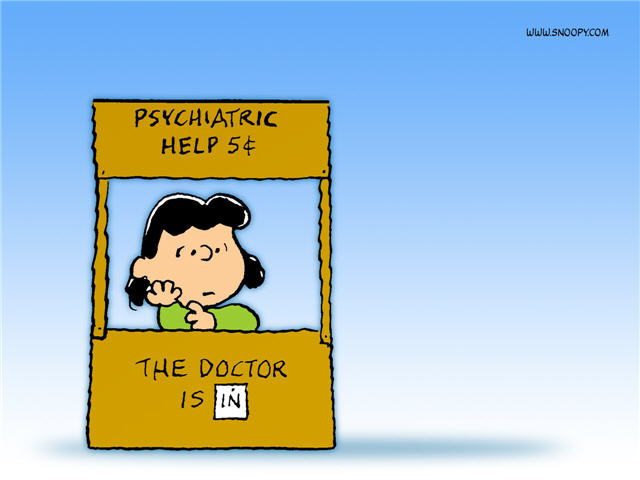Therapy is a major investment, which is why it’s so important to find someone who is worth investing in; someone whose values and personality complement your own. I conducted 3 months of research before purchasing my first car, so as you can imagine, I wouldn’t insist on anything less if I was looking for a therapist. Yes, I’m an over-analytical control freak…which makes me an excellent researcher and particularly challenging patient. But that’s for another blog.
Here are some tips on what to look for in a therapist – aside from, of course, a degree (as a Psychologist, Psychiatrist, Marriage and Family Therapist or Clinical Social Worker) and a valid license to practice (which you can authenticate online):
(Note: For the sake of simplicity, I will be using female pronouns when referring to the therapist).
- Clear objectives: Does your counselor clearly identify and outline which therapeutic approach she feels would work best? Does she clarify her prices, how long the sessions are, and how many you will need? Has she set objectives for what she hopes you can achieve during therapy? How will she track your progress in therapy? Most importantly, do you agree with all of her objectives?
- Complementarity: Each therapist has his or her own approach, just like every therapeutic approach has a different feel to it. In fact, many therapists are very flexible and can use a number of different therapies. In Psychodynamic Therapy, for example, you’ll likely be doing most of the talking, as your therapist will encourage you to speak openly about your thoughts and feelings. In Gestalt, your therapist is more interactive, and might even be a little bit “in your face.” Cognitive Behavioral Therapy involves at least some practical exercises, and may involve “homework.” So make sure to go with a therapeutic approach that fits your personality, values, and preferences.
- “On-the-couch” experience: It might sound surprising, but many therapists undergo therapy themselves from time to time. Being able to work through their own issues (it is a stressful job field, after all) puts them in a better mindset to help you, and also improves their empathy and social insight. You may even find yourself connecting better with someone who has been through difficult times and come out stronger and wiser.
- Active listening: Does your therapist make eye contact while you’re speaking? Does she nod or say “Go on”? Does she ask open-ended questions, like “And when this happened, how did it make you feel?” “Does she let you speak freely or does she constantly interrupt you?” Keep in mind that your therapist will likely take notes during a session, but she shouldn’t be busy scribbling all the time, barely paying any attention to you.
- Good people skills. Does your therapist have a warm and engaging personality? Is she polite? Does she explain things to you in layman terms in order to help you understand? Does she have a good understanding of human nature, or is she more of a cynic? Does it seem like she genuinely wants to help you? Does she maintain healthy boundaries with you (e.g. no unsolicited physical contact)? It’s also important to recognize the fact that you will be tackling issues in therapy that will be very uncomfortable (this is particularly true if you’ve experienced a trauma in your childhood or recent past). Your therapist should be able to create an environment where you feel safe exploring these issues.
- Respect: Whatever your gender, age, ethnicity, sexual orientation, religious belief or mental health issue, your therapist should maintain an open mind and show tact. Does your therapist make you feel accepted? Is she culturally sensitive? When you bring up the issues that are bothering you, does she sympathize with your feelings? Is she able to remain objective? Does she guarantee your confidentiality in writing?
- Realistic healing time: Therapy has come a very long way. Treatment methods have improved (Yay! No more lobotomies!), which means that a lot of mental health issues are treatable, sometimes in just a few sessions. That doesn’t mean, however, that your therapist should jump to conclusions too early, make grand claims that she can “fix you up in no time” or worse yet, gets impatient, ends your therapy sessions and declares you healed when you know you’re not ready. Like grieving, everyone heals at their own pace.
- Follow your “gut.” We often discount our gut instinct or intuition as illogical, but they are a lot more accurate than we think. When it comes to choosing a therapist, what it really all comes down to is how you feel around this person. Can you be yourself around this person? Do you feel at ease revealing your fears?
While it takes time to get used to opening up to a stranger, don’t be afraid to stop going to a particular therapist if you don’t feel comfortable with her. It is absolutely your right to end your therapy at any point – and a good therapist will make this clear to you.
Insightfully yours,
Queen D
References
Rubinstein, N. (2007). How to Choose a Counselor or Therapist. Retrieved from http://www.goodtherapy.org/blog/how-to-find-a-therapist
Whitbourne, S. K. (2011). 13 Qualities to Look for in an Effective Psychotherapist. Retrieved from https://www.psychologytoday.com/blog/fulfillment-any-age/201108/13-qualities-look-in-effective-psychotherapist.
Zur, O. (n.d.). How To Choose A Therapist. Retrieved from http://www.zurinstitute.com/choosing.html



Funny signs you need a new therapist | Queendom Blog
[…] ← Previous […]